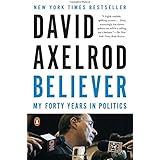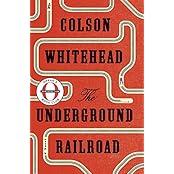Unless you've been out of the country and offline for the past month, you already know that Colson Whitehead (http://colsonwhitehead.com/) is the author du jour. He is everywhere! Since I heard him talk briefly at Book Expo in May, his latest novel, "The Underground Railroad," was chosen by Oprah for her book club, a wonderful phenomenon that gets important books into the hands of readers who may not otherwise be reached. I have since learned that Whitehead knew of the honor months earlier and had even filmed a PR video with Ms. Winfrey, but had been sworn to secrecy. http://www.npr.org/2016/08/08/489168232/colson-whiteheads-underground-railroad-is-a-literal-train-to-freedom
I read the book several weeks ago but was suddenly hospitalized and didn't get a chance to put my thoughts down while they were fresh. I've mulled it over, letting it percolate in my mind a bit, and have decided that the novel can be read on two levels, as a gripping historical fiction that you simply can't put down, and/or as a call to arms to open hearts and minds to the realization that only by reopening talks of reparations and then making good on them, will we ever come close to atoning for America's original sin.
Except for native Americans, all of us are the progeny of those who arrived voluntarily on our shores searching for a better life. Africans are the only people to be kidnapped from their homes, forcibly chained and shackled in the holds of boats, and dumped in ports like Annapolis, Charleston and Savannah to be auctioned off to the highest bidder. This is every bit as much a travesty as the Holocaust.
By researching original slave narratives for authenticity and detail, Whitehead created original narrative voices. Young Cora, the Gulliver who takes us along on her harrowing travels, is a formidable character. Enslaved on the Randall plantation in Georgia, Cora was only ten when her mother disappeared. Without protection she quickly learns to defend herself and the tiny scrap of land she tends outside her cottage door. But after Cora commits a personality defining, glorious act of rebellion, she is confined to the Hob, a crowded living space for "troubled" individuals. She is subjected, like all enslaved women, to rape and whippings. When Caesar approaches her with an escape plan, she is ready.
Whitehead's metaphor of underground railroad as actual trains and rails constructed within the bowels of the earth is brilliant. When Cora asks in awe, "Who built this?" the response is, "Who builds anything?" Thanks to Michelle Obama, now the whole world knows that enslaved blacks built the White House and oh so much more. By giving agency to the black workers on the long road to freedom, Whitehead instills pride in Cora and other escapees who have been beaten down physically and psychologically.
When Caesar and Cora reach South Carolina, Whitehead fills the reader with a false sense of security. Enslaved people are being taught to speak "properly," to read and write, while constantly being reminded that this would be against the law in North Carolina. Cora is found "acceptable" to be employed in a museum in a grossly demeaning job where she sits in position all day long behind a tourists' glass window, in an installation reflecting the "happy negro working on the plantation." She receives free health care. Wonderful, you might think, until the ugly truth surfaces and readers learn that she and others are being primed to submit to forced sterilization.
By the time the slave catcher, Ridgeway, finds them, Caesar and Cora are already on their way to another safe place. She is smuggled to Martin and Ethel's house in the back of a wagon. On the road into town, the so-called Freedom Trail, Cora sees mile after mile of black faces, bloated and vile in their death throes, hanging like decorations from the trees along the way. For months she languishes, barely fed, hidden under the rafters in Martin's attic, where she suffers the bird's eye view of the Friday night lynchings on the town green.
No, this is not an emotionally easy read but it is clever, insightful, and accessible for a new generation of readers whose knowledge of slavery and the underground railroad may have stopped in grammar school. As you read it, and you must, please try to imagine for one moment that you are Cora, barely living in this marginal existence. Try to understand the injustice that brought her and her forebears to the land of opportunity and the evil of a policy that denied full humanity to Africans and their descendants. You can't of course, but you can try.
Wednesday, August 24, 2016
Saturday, August 13, 2016
Axelrod's Believer Confirms Why I Am One
Those of you who know me well are aware that I am fascinated by politics, the good, the bad, and the ugly. I faithfully read at least two national newspapers each day and, if pressed, would even skip the book reviews for the political beat. I've been disillusioned and disappointed before, worked as a poll watcher, and as secretary of my local Democratic club. Honestly, I can't even say that I'm shocked at the current state of affairs in the United States. At this age, nothing can shock me any more.
 So it was in this frame of mind that I downloaded David Axelrod's "Believer, My Forty Years in Politics." As the man behind the message for Senator and then President Barack Obama, I was predisposed to love Axelrod. His sad sack body language, and that rumpled, hangdog look belie the fact that he is a brilliant strategist and an honorable man. No wonder his twenty-year relationship with the president has stood the test of time and politics.
So it was in this frame of mind that I downloaded David Axelrod's "Believer, My Forty Years in Politics." As the man behind the message for Senator and then President Barack Obama, I was predisposed to love Axelrod. His sad sack body language, and that rumpled, hangdog look belie the fact that he is a brilliant strategist and an honorable man. No wonder his twenty-year relationship with the president has stood the test of time and politics.
Axelrod gives readers background without an ounce of self-pity. Basically abandoned by his mother, raised by a father whom he loved and admired but who committed suicide during David's freshman year in college, Axelrod worked his way through school just barely, preferring his jobs on local Chicago newspapers to the tedium of the classroom. In the middle of the action is where he always preferred to be.
With a self-deprecating style Axelrod reads his own book, highlighting as many of his failures as his successes, and gives generous kudos to his wife Susan for holding down the fort so often when his job took him on the road. Especially poignant is the love and heartbreak he and Susan faced when they realized that their daughter had been born with severe learning disabilities.
Naturally, for me, the supreme enjoyment of the book is in the behind the scenes look at various elections over the past several decades, both small and large, but never insignificant. From the down and dirty mayoral races in Chicago, to Bush/Gore, and Kerry/Edwards, and the fantastical rise of a community organizer from the south side of Chicago to the freshman senate seat and the audacious run for president, I hung on every word.
Axelrod is long on praise for most of the people he's worked with over the years, saving his criticism for a very few. I was gratified to have a few of my suspicions over the years confirmed. John Edwards was truly as shallow and weak as we now know him to be. Long before "she was in remission" when I cheated on her, Axelrod had Edwards' number and removed himself from the campaign. Joe Biden and his family are actually as warm and loving as they seem in public, if not more so. He was Obama's first choice for VP from the jump and has proved to be worth his weight in gold.
And though my friend Don and I disagree heartily on this, Valerie Jarrett was a thorn in many sides from the very first day in office. Brought in as "special advisor to the president," she has, in my opinion, had too much power. On the other hand, Hillary Clinton comes out strong and capable, showing up the naysayers who didn't want Obama to have anything to do with her and serving proudly as Secretary of State.
Of course, it is the president who shines throughout this fascinating book. His determination to weather the short term pushback and bad press for long-term gains for the country and its people, renews one's faith in the political process. He was willing to be a one-term president if it meant getting the Affordable Care Act through, incurring the wrath of the right and disillusionment from his own people on the left. If you've ever wondered how anything gets done in government, Axelrod's window into the inner workings of campaigns and their results is wonderfully revealing.
 So it was in this frame of mind that I downloaded David Axelrod's "Believer, My Forty Years in Politics." As the man behind the message for Senator and then President Barack Obama, I was predisposed to love Axelrod. His sad sack body language, and that rumpled, hangdog look belie the fact that he is a brilliant strategist and an honorable man. No wonder his twenty-year relationship with the president has stood the test of time and politics.
So it was in this frame of mind that I downloaded David Axelrod's "Believer, My Forty Years in Politics." As the man behind the message for Senator and then President Barack Obama, I was predisposed to love Axelrod. His sad sack body language, and that rumpled, hangdog look belie the fact that he is a brilliant strategist and an honorable man. No wonder his twenty-year relationship with the president has stood the test of time and politics.Axelrod gives readers background without an ounce of self-pity. Basically abandoned by his mother, raised by a father whom he loved and admired but who committed suicide during David's freshman year in college, Axelrod worked his way through school just barely, preferring his jobs on local Chicago newspapers to the tedium of the classroom. In the middle of the action is where he always preferred to be.
With a self-deprecating style Axelrod reads his own book, highlighting as many of his failures as his successes, and gives generous kudos to his wife Susan for holding down the fort so often when his job took him on the road. Especially poignant is the love and heartbreak he and Susan faced when they realized that their daughter had been born with severe learning disabilities.
Naturally, for me, the supreme enjoyment of the book is in the behind the scenes look at various elections over the past several decades, both small and large, but never insignificant. From the down and dirty mayoral races in Chicago, to Bush/Gore, and Kerry/Edwards, and the fantastical rise of a community organizer from the south side of Chicago to the freshman senate seat and the audacious run for president, I hung on every word.
Axelrod is long on praise for most of the people he's worked with over the years, saving his criticism for a very few. I was gratified to have a few of my suspicions over the years confirmed. John Edwards was truly as shallow and weak as we now know him to be. Long before "she was in remission" when I cheated on her, Axelrod had Edwards' number and removed himself from the campaign. Joe Biden and his family are actually as warm and loving as they seem in public, if not more so. He was Obama's first choice for VP from the jump and has proved to be worth his weight in gold.
And though my friend Don and I disagree heartily on this, Valerie Jarrett was a thorn in many sides from the very first day in office. Brought in as "special advisor to the president," she has, in my opinion, had too much power. On the other hand, Hillary Clinton comes out strong and capable, showing up the naysayers who didn't want Obama to have anything to do with her and serving proudly as Secretary of State.
Of course, it is the president who shines throughout this fascinating book. His determination to weather the short term pushback and bad press for long-term gains for the country and its people, renews one's faith in the political process. He was willing to be a one-term president if it meant getting the Affordable Care Act through, incurring the wrath of the right and disillusionment from his own people on the left. If you've ever wondered how anything gets done in government, Axelrod's window into the inner workings of campaigns and their results is wonderfully revealing.
Tuesday, August 2, 2016
The Girls is Terrifyingly Good
 I sat alone in my living room in Massachusetts. I was at a critical point in Vincent Bugliosi's "Helter, Skelter." Suddenly all the lights in the house, and I later learned, the entire neighborhood, went out. There was no doubt in my mind that Charles Manson had discerned that I was reading about him, about the electric power that he held over his girls, and that he was sending me a message. I was paralyzed when the neighbors, brandishing flashlights, knocked on the door offering help.
I sat alone in my living room in Massachusetts. I was at a critical point in Vincent Bugliosi's "Helter, Skelter." Suddenly all the lights in the house, and I later learned, the entire neighborhood, went out. There was no doubt in my mind that Charles Manson had discerned that I was reading about him, about the electric power that he held over his girls, and that he was sending me a message. I was paralyzed when the neighbors, brandishing flashlights, knocked on the door offering help.That feeling of helpless paralysis in the face of evil overwhelmed me all over again as I raced through "The Girls," the riveting debut novel from Emma Cline (https://emmacline.com). How, I ask myself for the hundredth time, does someone so young in life experience express herself so maturely? It's as if she holds the wisdom of the ages in her heart.
It's the late '60's in northern California. The "summer of love," is past its heyday. Fourteen-year-old Evie Boyd is bored with her old friends. She's at that awful, hormonal, gawky stage that can be so painful and lonely and neither of her divorced parents has time to worry about Evie's angst as they're trying to rebuild their own lives. This is the stage in a young woman's life where one wrong decision will have ripple effects for years down the road.
Emma Cline places the reader firmly inside Evie's psyche. It's a marvelous feat of writing. On the cusp of her sexual awakening, Evie feels drawn to danger, to doing something outrageous, to being seen by someone. And so she plots a way to meet Suzanne, an older "girl" who exudes an aura of excitement, perhaps debauchery, as she roams town in her scruffy, hippie skirts, tank tops revealing unshaven armpits, giving off a slightly musky odor.
There's talk in town of Suzanne and the other girls, her acolytes, who steal food from dumpsters in back of the grocery stores. They take it back to the ranch where they all live, work, and communally raise their kids under the watchful eye of the Charles Manson-like Russell. And here at the ranch Evie will be the next girl to fall under the spell of stronger and stronger drugs, less and less food, and the sensual bond with Suzanne that fills Evie with conflict. How far will she go to please Suzanne, the first person who sees her, who really gets her? What an aphrodisiac!
Cline told us when she spoke in Chicago at Book Expo in May that she'd always been fascinated with true crime. I, too, went through a long stage when I read so much true crime that I actually believed I was stifling my ability to trust people. For Cline, her interest stoked the literary juices that resulted in a terrifying but exquisitely rendered portrait of evil. This book is about a horrific crime that was probably one of the most written about and analyzed in the twentieth century, yet Cline, by novelizing it, takes us right to the edge thinking, no, it won't happen that way. At the risk of sounding over the top, this is a tour de force.
Subscribe to:
Comments (Atom)

